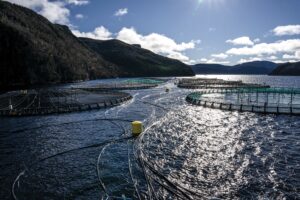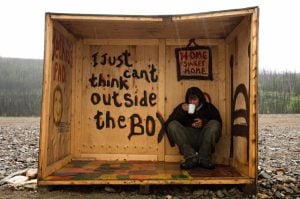
Environment
Canada’s greenest prof
Vancouver might just be home to the greenest building in the world. Meet the geography professor who brought it to life.
- 2598 words
- 11 minutes
This article is over 5 years old and may contain outdated information.
People & Culture
A Yukon Quest musher shares his thoughts on the sled dog race

Rob Cooke and his wife moved to Canada from the United Kingdom about 10 years ago after deciding to participate in the Yukon Quest. Cooke’s job landed them in Nova Scotia and their team of huskies grew from nine to more than 30. After nearly a decade of training, planning and saving money, Cooke and his wife, who acted as his handler, participated in the Yukon Quest for the first time last year.
What drew you to the Yukon Quest over other sled dog races?
Something about the Quest just appealed to me more. From the outside, it seemed like a close-knit group of people involved in the race and it isn’t as popular as the Iditarod. From my perspective, although I haven’t done the Iditarod, the Quest is more of a challenge. There are fewer checkpoints and greater distance between them, so you spend more time on the trail with the dogs. Sometimes you have to camp overnight with them. Also, it’s held in February, as opposed to March, so it’s colder and the course seemed more difficult.
What is it like to go 1,609 kilometres on your own with a team of dogs?
It’s amazing; I just love running dogs. One of the things that really appeals to me about sled dog racing is being out in the bush with my dogs relying on each other. However, you do get really tired. Just after leaving the Pelly Crossing checkpoint, I got slightly depressed because I knew we had such a long stretch before arriving at the Dawson City checkpoint (441 kilometres). But the dogs really lifted my spirits.
What was the most challenging part of the race for you?
It really goes back to the dog care. Everything I do is focused on the dogs, such as looking after them and making sure they get as much sleep as possible. As a lot of mushers will say, you tend to let your own sleep patterns go. After the first three days of the race, I think I had a maximum of seven hours sleep. It’s enough to play with your mind and it becomes really difficult to make important decisions. I tried to prepare by getting into a routine before the race, so that when I was really tired, it won’t affect the dogs.
What was the most memorable part of the race?
I came out of the Carmacks checkpoint, about 320 kilometres into the race. The sun was coming up and it was a beautiful freezing morning. My dogs and I were climbing King Solomon’s Dome, a 1,234-metre-tall Yukon mountain, and it seemed like the Yukon was laid out before me. The whole landscape was white against the cold blue sky.
What’s more exciting, the start of the race or the finish?
The start was the most amazing because my wife and I have been trying to get to it for nine years. I didn’t feel nervous at all, which was unusual because the crowds were huge. As soon as the countdown started, I had a huge rush of adrenaline. There are videos of me screaming and punching the air!
Final words?
The Yukon Quest has changed our lives. The territory really is an amazing place that deserves a race like this.




Are you passionate about Canadian geography?
You can support Canadian Geographic in 3 ways:

Environment
Vancouver might just be home to the greenest building in the world. Meet the geography professor who brought it to life.

People & Culture
The story of how a critically endangered Indigenous language can be saved

Environment
Struggle and success in Atlantic Canada, where aquaculturists strive to overcome climate change and contamination while chasing a sustainable carbon footprint

Travel
An insider’s account of the modern-day gold rush